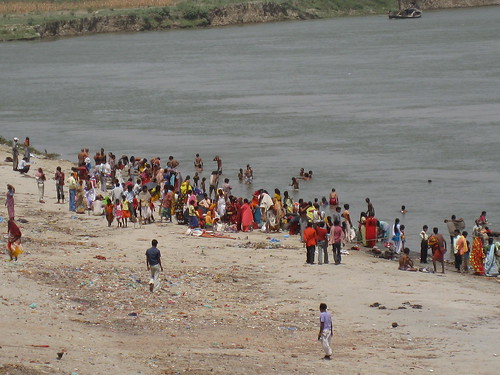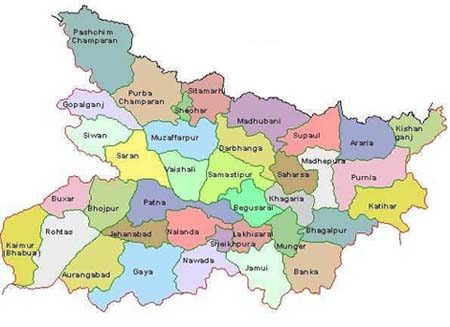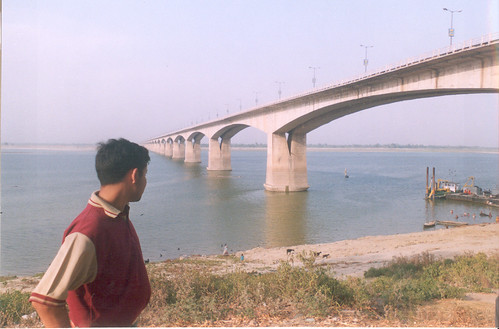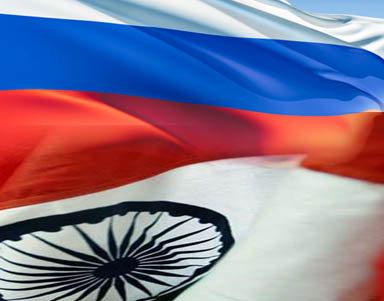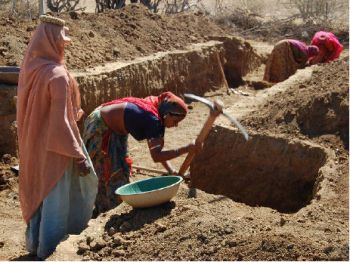I.P.S. OFFICER TO ROBE UNIFORM AFTER QUITTING?
The bureaucratic circle in the Bihar Government is facing a peculiar type of administrative procedural wrangle and web. Gupteshwar Pandey, an IPS of 1987 batch Bihar cadre officer took voluntary retirement (VR) on the eve of last Parliamentary election in the hope of getting ticket of a National Party. His VR application was processed and accepted after completing all necessary formalities well before beginning of the last parliamentary elections which took place in May 2009. In fact the notification to this effect was also issued after President of India’s approval as required under Article 311 of Indian Constitution. Pandey was ducked by the party and he could not get the ticket.
Now after a gap of nearly 6 months, Mr Pandey has filed a petition before the government praying therein to allow his VR application to be withdrawn. Pandey has reported to have quoted ‘personal reasons’ for this prayer. In other words he has requested the government to re-instate him to the post he resigned. This is a peculiar situation and perhaps the first of this kind. The state government has never faced such a typical constitutional and legal issue.
Leaving aside the political nature of this issue, this matter has raised some vital legal and constitutional issues which needed to be settled before taking any final decision.
1) Article 311 and 312 of Indian Constitution are relevant with respect to government servant including All India Services to which Mr Pandey belonged. The former Article suggests that a government servant cannot be removed except in the manner and procedure laid down under the law enacted and rules framed. But this Article is silent as to what will happen if the officer has resigned voluntarily and subsequently seeks his re-instatement after the acceptance of his VR application.
2) Article 312 provides for creation of All India Service and under this Article, the IAS, IPS and host of All India Services have been created and rules framed to regulate them.
3) In order to regulate, control and provide professionalism to these services, several Rules have been framed in this connection. The All India Services (conduct) Rules 1968 and The All India Services (Discipline and Appeal) Rules 1969 are of special relevance in this case.
PROVISIONS WHICH GOES AGAINST THIS RE-INSTATEMENT- Rule 5 of The All India Services (conduct) Rules, 1968 says that no member of the Service shall be a member of, or be otherwise associated with, any political party or any organization which takes part in politics, nor shall he take part in, or subscribe in aid of, or assist in any other manner, any political movement or political subscribing in aid of or assisting in any other manner, activity.
The Sub Rule-2 further clarifies that It shall be the duty of every member of the Service to endeavour to prevent any member of his family from taking part in or any movement of, activity which is, or tends directly or indirectly to be subversive of the Government as by law established, and where a member of the Service is unable to prevent member of his family from taking part in or subscribing in aid of, or assisting in any other manner, any such movement of activity, he shall make a report to that effect to the Government.
In the case of Mr Pandey, his political affiliation has been established as he wanted to fight election on the ticket of a National Political Party (needless to mention name of party). Thus his partisan approach, which is the essence of this service, has been tattered and on principle he can never be supposed to act in a non discriminatory manner or impartial way.
To check such practises and tendencies and also prevent politicisation of bureaucracy, the State government had issued a circular bearing no-5/m/5048/85 pers-10578 on dated 28 August 1985 stating therein that if any government servant resigns for fighting election and subsequently files petition seeking withdrawal of resignation, such applications should be out-rightly rejected. This circular further instructs that if any government servant fights or participates in elections without tendering resignation; his or her services should be terminated. Message is clear; the government employees must remain non-political. But in this case, Pandey’s intensions have been more than clear therefore legally speaking his application ought to be rejected.
OPTIONS BEFORE THE GOVERNMENT- If the government decides to allow Pandey to withdraw his resignation and pave way for his re-inclusion into the service, it has to withdraw this circular first and then issue a fresh instruction as required under article 309 and 162 of Indian Constitution. It has to recommend to the MHA also because Pandey happened to be a member of All India Service and President of India is the appointing authority under Article 312 of the Constitution. Ministry of Personnel, Public grievance and Pension will have to either repeal All India Services (conduct) Rules, 1968 and All India Services (Discipline and Appeal) Rules, 1969 or amend them accordingly because the provisions under these Rules are against such re-instatement in letter and spirit. Moreover, the aforesaid Articles would have also to be put to review.
If Pandey is re-instated into the service, it will have a far reaching ramification in the administrative and bureaucratic history of this country, because it will unleash a trend in which more and more government servants would flex their muscles in the political fields and will seek re-instatement after losing the battle. Now everyone here is sitting fingers crossed waiting for the government to take a final decision in this regard.

